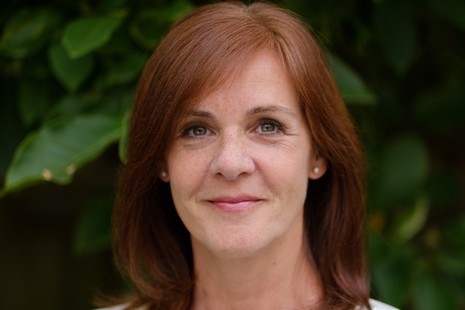UK ambassador urges Britons to apply for Dutch residency by September 30


The UK’s ambassador to the Netherlands has urged British nationals to submit their applications for residency before the post-Brexit ‘grace period’ ends at the end of the month.
The embassy and the Dutch immigration service IND estimate that around 2,000 Dutch-based Britons have not applied for either short-term or permanent residency since the UK left the European Union.
Joanna Roper warned that the process would become ‘more difficult’ after the September 30 deadline, though the Dutch government says it will continue to accept applications for another 12 months.
But she stressed that it had been a ‘very straightforward’ exercise for the 38,000 Britons who have secured residential status. The IND has set up an English-language web page and helpline for UK citizens who are applying for residency and sent out letters to people’s home addresses.
‘The Dutch have been very efficient at this,’ she said. ‘99% of people who have put their applications in have been approved, and if somebody forgets to include a piece of information there’s been opportunities to do that.
‘This is not about catching people out. It’s about giving people the opportunity to get their application in and continue living, working, studying and enjoying life in the Netherlands.’
No legal status
Ms Roper said people who missed the deadline could still apply for residency for up to another year, but stressed this is not an extension of the grace period and they will be technically living in the country illegally.
‘People can still submit an application, but the risks are that they might be not have access to services, to social security, tuition fees for students, or they may have problems taking out a mortgage,’ she said.
‘All those things you take for granted having achieved residency are likely to become a little bit more difficult, if not impossible. And if you haven’t got a legal basis to stay in a country then clearly that becomes very problematic indeed.
‘So our big message is, if you haven’t applied please do. You’ve got two weeks to do it, it is a straightforward process and the Dutch will reach out and try and support. And if you know other UK nationals, please get that message out to them as well.’
Flexible policy
Deputy justice minister Ankie Broekers-Knol said in a letter to parliament this month that the Dutch government would still accept applications until the end of September 2022 under the terms of the UK’s withdrawal agreement from the EU.
‘As long as these conditions are met and a Brexit residency document is issued, British citizens’ residential status will retrospectively be deemed legal,’ she wrote.
‘That means, for example, that any benefits and subsidies that were stopped as a result of their legal status changing can be repaid.
‘After this 12-month period, from October 1 2022, the more flexible policy for Britons applying for a Brexit residency document will end and they will be treated in the same way as other third-country nationals.’
98.4% accepted
Anyone who registered with a local authority (gemeente) in the Netherlands before the end of 2020 is eligible to apply for residency under the terms of the Withdrawal Agreement.
Those who have been in the country less than five years can apply for renewable limited-term residency, while people who arrived before the end of 2015 are eligible for permanent residency.
The IND’s latest figures show 98.4% of the 38,436 applications for residency so far have been accepted, while just 250 were rejected. Another 388 were not processed for other reasons, such as an applicant having obtained Dutch citizenship.
Another 5,612 EU residency permits have been exchanged for Dutch residential status under the terms of the withdrawal agreement.
Thank you for donating to DutchNews.nl.
We could not provide the Dutch News service, and keep it free of charge, without the generous support of our readers. Your donations allow us to report on issues you tell us matter, and provide you with a summary of the most important Dutch news each day.
Make a donation